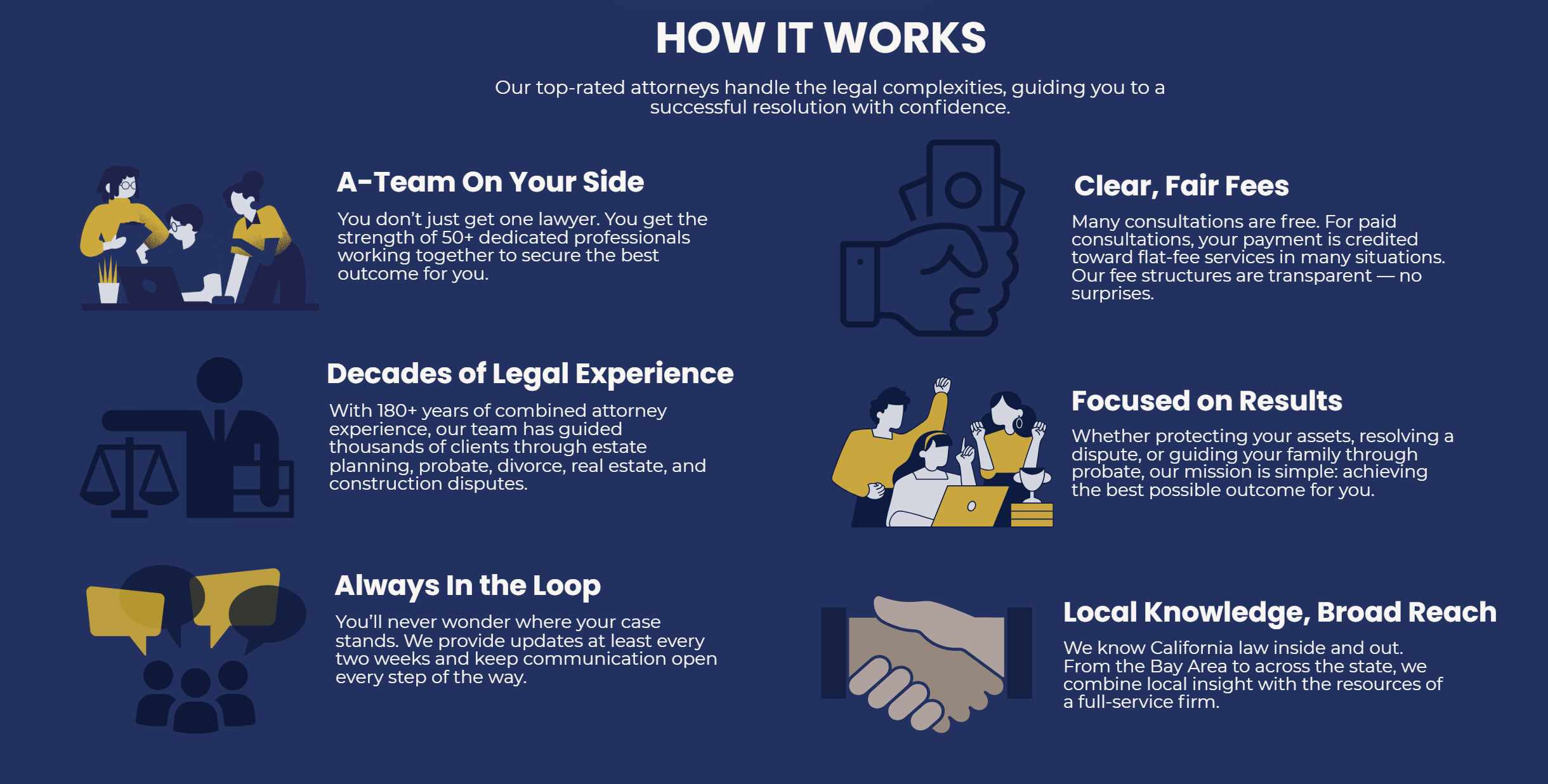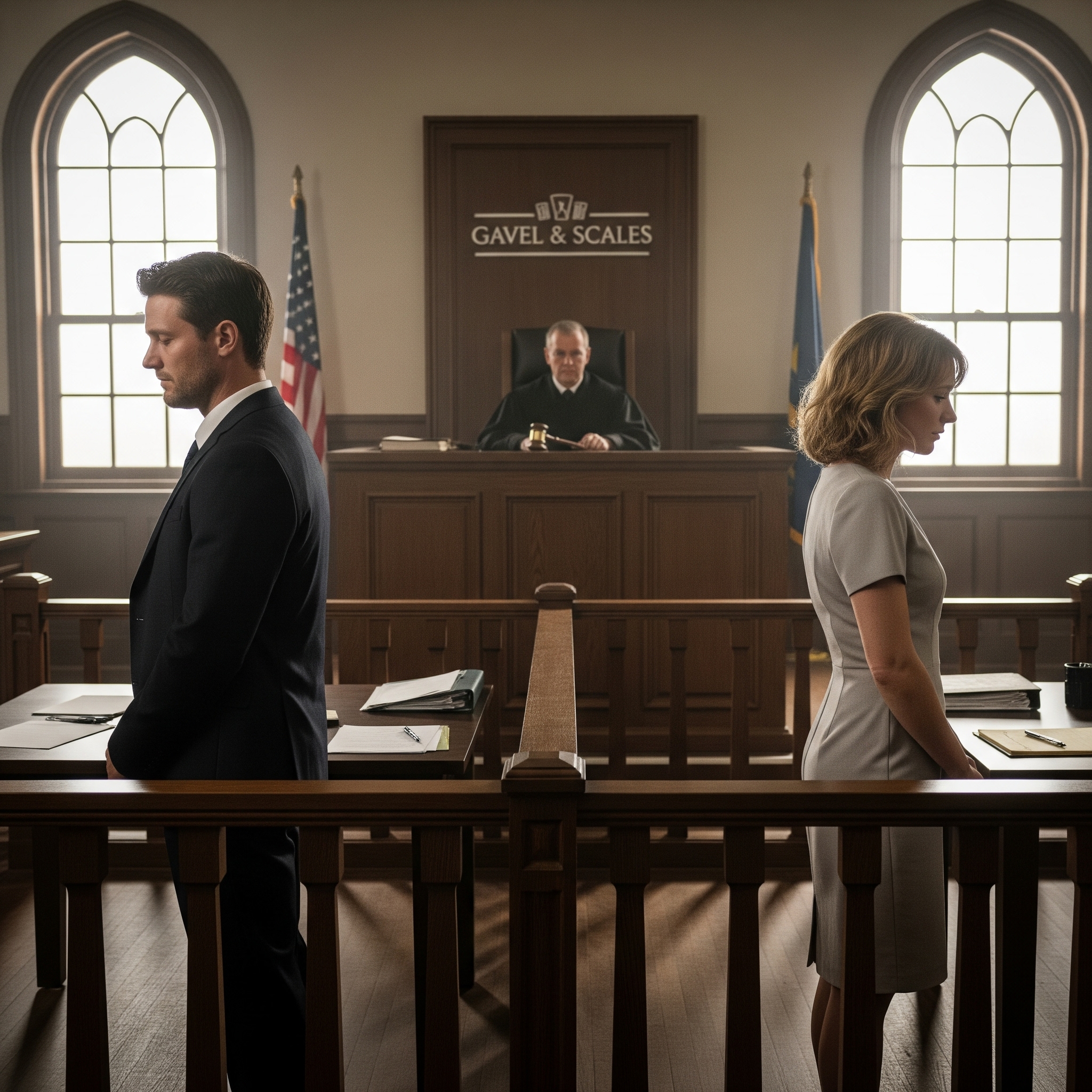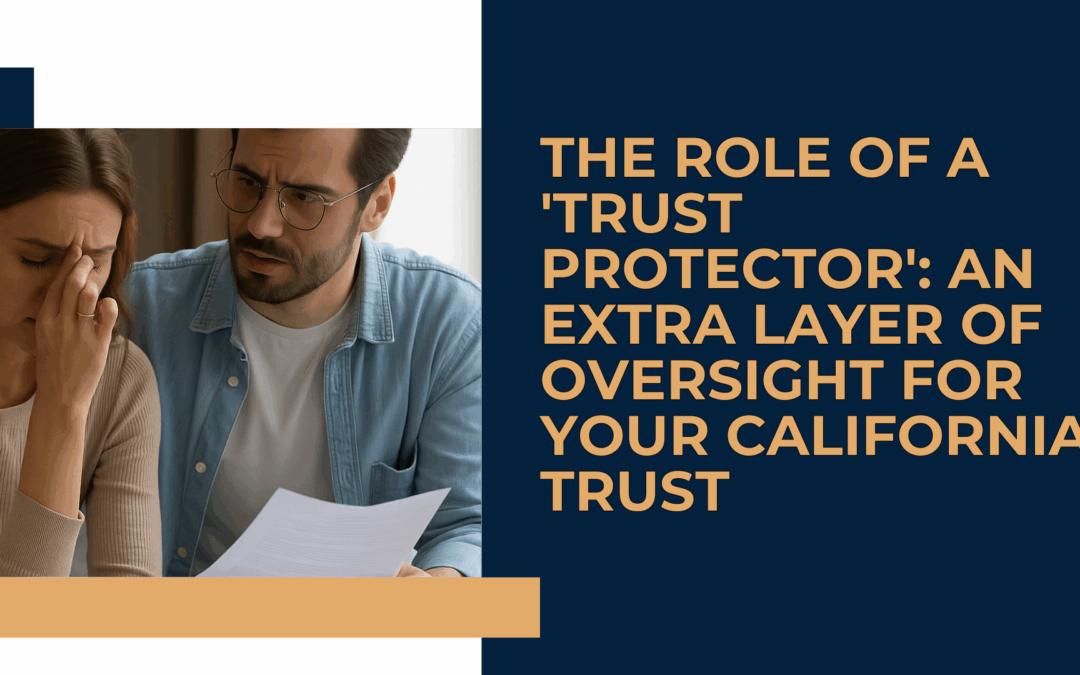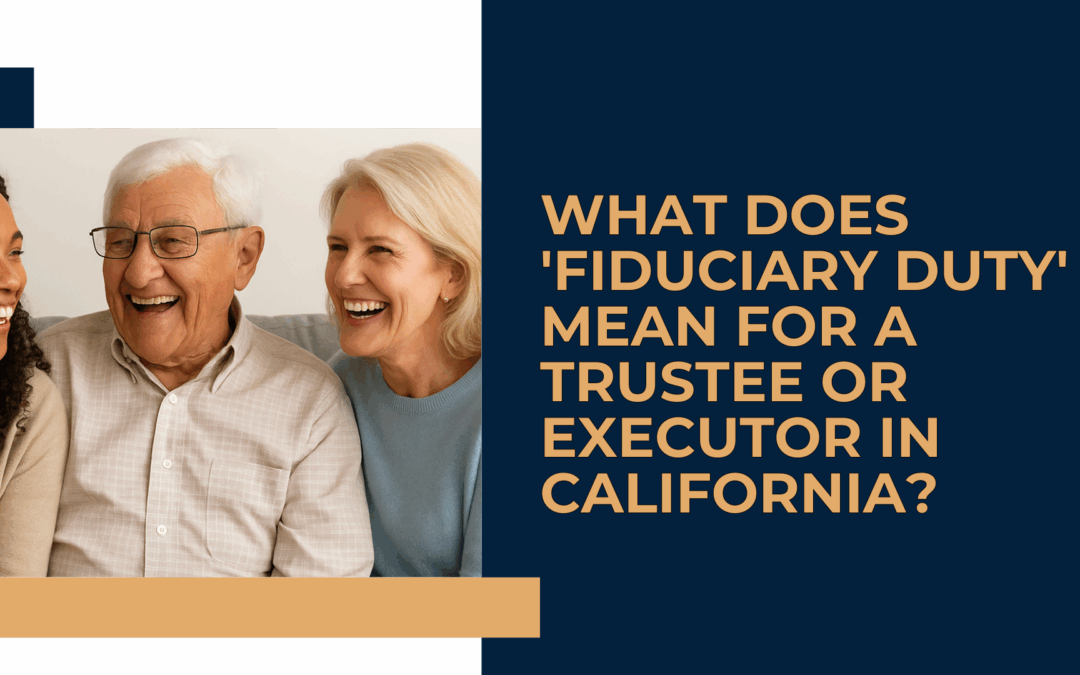Your Legacy Advocate
Protecting What Matters Most — Your Family, Your Future and Your Legacy.

Why Choose Bay Legal for Your Legal Needs?
Bay Legal is More Than a Law Firm
We are your partner in protecting what matters most — your family, your assets, and your future. Our attorneys provide tailored solutions in estate planning, probate, divorce, real estate, construction, and related disputes, supported by a team of 50+ professionals and 180+ years of combined attorney experience.
Personalized Service, Modern Tools
Whether you’re creating or updating an estate plan, navigating probate, finalizing a construction contract, or resolving a family or property dispute, Bay Legal blends proven legal expertise with technology-driven efficiency. From scheduling consultations to reviewing and signing documents, our secure digital tools keep the process simple and accessible on your terms.
Trusted Guidance, Lasting Protection
At Bay Legal, we combine the personal attention of a dedicated attorney with the strength of a full-service team. Our goal is clear: to keep you informed, safeguard your interests, and deliver results that protect your family and legacy for generations to come.
Legal Services
WHAT YOU’VE BUILT IS WORTH PROTECTING.
You’ve worked relentlessly to build your success—for your family, your business, and your future. At Bay Legal, we provide the sophisticated legal strategies required to protect it all. We serve as your dedicated partners, offering comprehensive counsel that shields your personal legacy and your professional achievements.
Whether you are creating a multi-generational estate plan, navigating a high-stakes real estate dispute, managing complex construction litigation, or resolving sensitive family law matters, our primary focus is your security. Our team delivers proactive, intelligent solutions designed for meticulous risk management, strategic growth, and lasting peace of mind.
From drafting ironclad contracts to decisively representing your interests in court and at the negotiating table, Bay Legal is the cornerstone of your protection, ensuring your hard-won success is preserved for generations to come.

Real Estate Law

Family Law / Divorce

Business Law

Mediation

Financial Transitions

Construction Law

Contract Drafting & Review

Demand Letter/Document Reviews

Employer Legal Plans
Meet Our Legal Team
Our team of dedicated legal professionals ready to assist you with your legal needs in California. With expertise across various practice areas, our attorneys are committed to providing exceptional service and personalized solutions.
Litigation

Jayson Elliott
Managing Attorney

Evan Livingstone
Lead Litigation Attorney

Wendy M. Conole
Senior Litigation Attorney

Kelsey Ibarrola
Litigation Attorney

James E. McDaniel
Attorney

Hugo N. Gerstl
Of Counsel

Clarence Olson
Attorney
Estate Planning

Agnes Martin
Attorney - Trusts & Estates

Rachael A. Berg
Attorney – Trusts & Estates

Sivendra Ganesh Maraj
Attorney - Trusts & Estates
Divorce

Richard Marks
Attorney
California’s Trusted Legal Powerhouse
With a record of proven results across estate planning, probate, divorce, real estate, and construction law.
Confidence at Every Step
With Bay Legal, PC in your corner, you gain more than a lawyer — you gain a full team of 50+ professionals and 180+ years of combined attorney experience. From your first call to the final resolution, we make the process as smooth, clear, and reassuring as possible.
Strategic, Results-Driven Representation
Our attorneys collaborate seamlessly to protect your rights and achieve the best outcome. Whether your case calls for swift negotiation or aggressive courtroom advocacy, we fully investigate, assess, and align our strategy with your goals — giving you clarity and direction when you need it most.
Recognized Across California
Trusted statewide for excellence in estate planning, probate, divorce, real estate, and construction law, Bay Legal has served thousands of satisfied clients. We are known for results-driven advocacy and an unwavering commitment to our clients’ success.

Consult With Confidence
Many of our consultations are free, and for those that require a fee, your payment is often credited toward flat-fee services. At Bay Legal, PC, you’ll speak with seasoned California attorneys backed by 180+ years of combined experience and a proven record of results.
Whether you’re planning your estate, navigating probate, facing a divorce, or resolving a real estate or construction dispute, we provide clear, strategic guidance tailored to your needs.
California’s Trusted Legal Advocates – Powerful Representation When You Need It Most
At Bay Legal, PC, we understand that legal disputes are rarely just about paperwork—they’re about people, livelihoods, and futures. Our firm has spent decades guiding clients through complex legal matters with precision, strategy, and unwavering dedication. Whether it’s safeguarding your family’s legacy through meticulous estate planning, navigating high-stakes real estate and construction disputes, or resolving intricate business conflicts, we are committed to delivering results that protect your interests.
Too often, legal challenges arise because someone failed to uphold their responsibilities—whether it’s a breached contract, a negligent construction practice, a disputed property right, or a poorly drafted agreement. At Bay Legal, we hold those parties accountable and fight to secure the outcomes our clients deserve. We believe in clear, proactive strategies that not only solve today’s problems but also prevent tomorrow’s.
Our attorneys bring decades of combined experience across California’s legal landscape and have earned the trust of clients statewide—from individual families and entrepreneurs to established corporations. With deep roots in California, we serve clients from our headquarters in the Bay Area and extend our services throughout the state. Every case we take on receives the same level of meticulous preparation and courtroom readiness, ensuring our clients have an advocate prepared for every possibility.
At Bay Legal, you’re not just hiring a law firm—you’re gaining a dedicated legal partner who will stand by you, protect your rights, and relentlessly pursue the best possible outcome for your case.
Breaking Insights from Our World-Renowned, Trusted Legal Blog

The Role of a ‘Trust Protector’: An Extra Layer of Oversight for Your California Trust
Discover the trust protector, a key role for adding flexibility to your estate plan, modifying trusts, and removing a problematic trustee.

The Power of the LLC in a California Estate Plan
TL;DR Using an LLC...

The Missing Piece of Your Estate Plan: Why You Need a HIPAA
TL;DR Your health...











